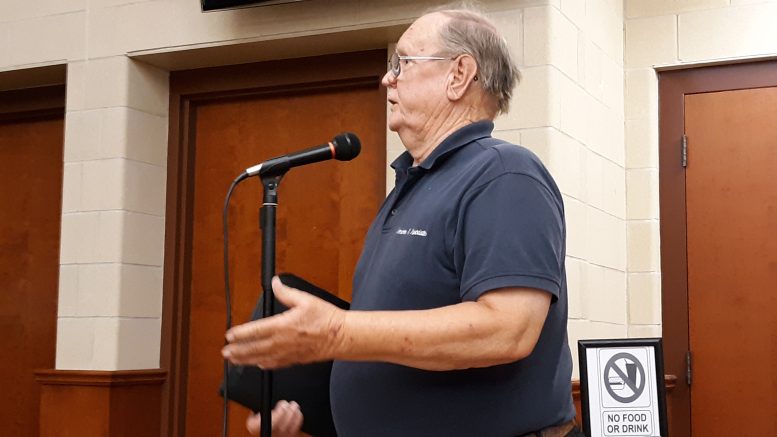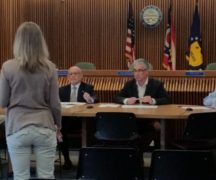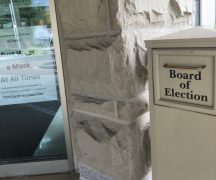By JAN LARSON McLAUGHLIN
BG Independent News
The Wood County Board of Elections has voted to file a complaint with the Ohio Elections Commission over attempts to keep an anti-school levy campaign donor secret.
The complaint is against Donald J. McTigue, a Columbus attorney who claimed campaign donors can remain anonymous.
Another complaint has already been filed against Bud Henschen, of Bowling Green. Through a subpoena, it was discovered that Henschen was behind the “Bowling Green Levy Facts” election expenses that paid for advertising against last November’s school bond issue – which lost by 32 votes.
Both Henschen and McTigue are accused of concealing information and not following state statute that requires donor names be signed on the elections finance form.
The anonymous campaign finance report detailed the more than $10,000 spent last year to oppose the Bowling Green school levy.
This is not the first time Henschen has tried to keep his efforts against school election issues secret. Henschen had tried to remain anonymous in 2017, when he sent out 8,400 mailers opposed to the school bond issue. Those mailers – which had no identification of who created or financed them – included incorrect tax numbers that were much higher than the actual taxes.
Ohio election law requires that campaign donors and those who pay for election ads must be identified.
The Ohio Campaign Finance Handbook states that contributors may not remain anonymous by request. “If a donor does not want to be identified, then the contribution should not be made,” the handbook states.
McTigue claimed anonymity of donors is protected by the First Amendment. He stated in a letter to the board of elections that his client did not need to reveal his identity.
Never faced with such a request, the Wood County Board of Elections asked the Wood County Prosecutor’s Office to review the request for anonymity. The prosecutor’s office shared concerns that anonymous donors were not complying with the law.
McTigue cited the 1995 U.S. Supreme Court case of McIntyre v. Ohio Elections Commission, as supporting the claim for anonymity.
However, the Wood County Prosecutor’s Office pointed out that the McIntyre case deals with the freedom to publish political items anonymously. That is different than the issue in Wood County, according to the prosecutor’s office.
“The facts before the Wood County board involve the failure to provide the address and signature on a campaign finance form filed after an election and not leaflets circulated before an election with the purpose of influencing voters,” a letter from the prosecutor’s office stated.
The board of elections members weren’t the only ones wanting answers.
Bowling Green citizen Roger Mazzarella also filed an official complaint with the Ohio Elections Commission earlier this year.
In his complaint to the Ohio Elections Commission, Mazzarella wrote: “One of the main themes of the anti-levy campaign was a call for more transparency and accountability of the BG City Schools administration and board. It is interesting and ironic that one campaign against the issue refuses to identify the source of over $10,000 spent to defeat the issue, claiming a First Amendment right to anonymity.
“It is logical to conclude that if there is no action by the Wood County Board of Elections and/or other state agencies, there will be a new precedent established in Wood County (and indeed in the entire state of Ohio) allowing anyone to hide behind the guise of anonymity during any election for or against an issue or candidate,” Mazzarella wrote in his complaint to the Ohio Elections Commission. “The electorate has the right to know who is financing campaigns for and against ballot issues and candidates and why.”





